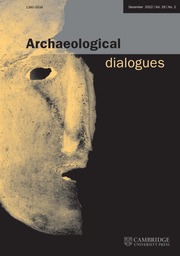-
- You have access: full
- Open access
- ISSN: 1380-2038 (Print), 1478-2294 (Online)
- Editors: Professor Joanna Brück University College Dublin, Ireland, Professor Audrey Horning The College of William & Mary, USA, Dr Eva Mol University of York, UK, Professor Omur Harmansah University of Illinois at Chicago, USA, Dr Artur Ribeiro Christian-Albrechts-Universität zu Kiel, Germany, and Professor Uzma Rizvi Pratt Institute, USA
- Editorial board
Latest content
Archaeology blog

-
Surviving the Apocalypse: Catastrophe Archaeology in Japan
- 26 July 2024,
- [Aerial view of the southern half of Tanegashima Island. Pyroclastic flows swept in and entirely devastated ecosystems in Southern Tanegashima (credit: Junzo Junzo Uchiyama (Kanazawa University, Japan) and Peter Jordan (Lund University, Sweden) In June this year, CALDERA, the new Nordic-Japan research programme on “Catastrophe Archaeology” was awarded Antiquity’s Ben Cullen Prize 2024 for its opening pilot-study of human responses to the Holocene’s largest ever volcanic eruption.…...

-
Unraveling the Legacy of Indigenous and European Peoples Using Dogs from Jamestown
- 04 June 2024,
- Dogs were one of the many animal companions that accompanied English settlers to Jamestown, Colony, Virginia, in the year 1607. In fact, one of the first recorded...

-
Origins of medieval coinage revealed
- 20 May 2024,
- If you were living in north-west Europe in the late 7th century, you would have experienced something that your parents, grandparents, and more distant ancestors...




Facebook